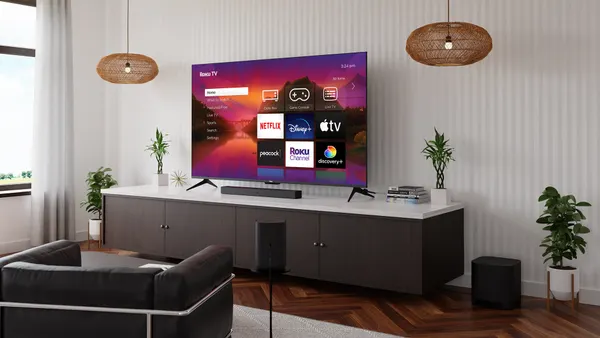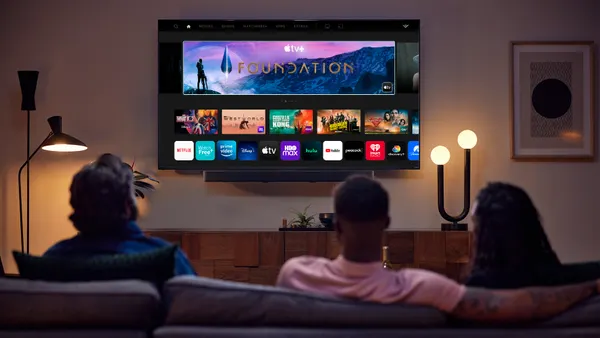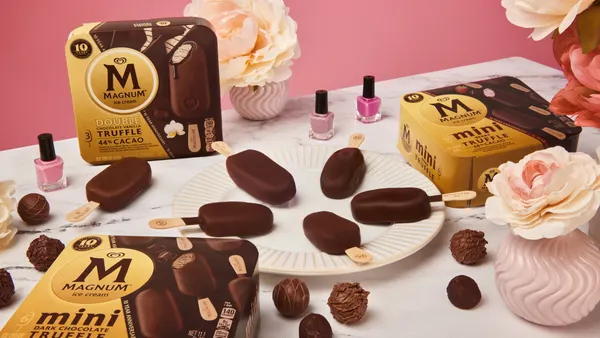Dive Brief:
- AB InBev's heavy marketing push around this year's FIFA World Cup tournament weighed on Q2 performance and has led the company to streamline its global management structure, according to Bloomberg. U.S. beer struggles also haven't abated for the marketer, with revenues slipping 3.1% in the segment during Q2 on lower volumes as power brands Budweiser and Bud Light continue to lose market share, according to a company release.
- To drive growth, the beer giant will combine ZX Ventures, a segment founded in 2015 to create products for evolving consumer demands, with its marketing branch. As part of the adjustment, AB InBev named Pedro Earp, who was the head of ZX Ventures since its inception, as CMO, replacing Miguel Patricio in the role, according to The Drum. The company has also created a head of nonalcoholic beverages position to cater to millennial and Gen Z shoppers, who drink less than older generations. Nonalcoholic beverages account for more than 10% of AB InBev's volumes, but they plummeted 43% in the second quarter.
- The company is also revamping its management structure to improve its agility, reducing its nine global markets to six. This transition is part of AB InBev's ongoing push to integrate SABMiller, which it bought in 2016 for more than $100 billion, and is meant to drive sales and cut costs. "We are now close to two years in the new company following the integration, and we just feel this is the right time to adjust our structure to better reflect the opportunities before us," Chief Financial Officer Felipe Dultra told Bloomberg.
Dive Insight:
In addition to navigating a volatile beer market — where consumers are increasingly passing over cultural mainstays such as Budweiser and Bud Light for craft brews, international beer imports, wine and spirits — AB InBev is also struggling to recover from its marketing spend on the World Cup. Campaigns around the global soccer tournament included one for Budweiser with creative depicting drone deliverers of the beer. The effort ran in more than 50 countries on TV and digital channels, and the company also distributed more than 8 million special Red Light Cups throughout the World Cup.
These marketing investments undermined the benefits of the company's SABMiller acquisition, which cut $199 million in costs during the second quarter. The beer giant predicted a 0.5-1% drag on earnings growth as a result of the advertising boost. Still, the company said that this push helped it sell more beers in stadiums during the World Cup than during the 2014 games.
AB InBev's targeted and robust marketing spend around this event reflects its push to gain revenue from popular athletic occasions to make its mass-market products top of mind once again for beer drinkers, who have been lured by smaller, trendier brands in the past few years. The company is not yet able to determine whether the company's marketing blitz around the World Cup will translate to meaningful long-term growth, and if it will implement similar strategies in the future.
Still, it's clear that the company is willing to experiment to keep up with competition from both startups and established brewers. AB InBev's creation of a head of nonalcoholic beverages position is a prime example of this, and could help the company better align with evolving millennial and Gen Z trends. These younger consumers are interested in alcohol-free cocktails and other CPG, alcohol-free and experience-focused drinks, which has spurred beverage makers to innovate with light and entirely nonalcoholic varieties.
Beer companies have seen sales flourish in their low- or no-alcohol portfolios as shoppers look for healthier beverage options. The three top-selling beers in the U.S. are Bud Light, Coors Light and Miller Lite, according to an IRI Worldwide Report. AB InBev's rivals, including Constellation, Guinness and Coors, have all rolled out low-calorie beers to meet this demand, and it appears that AB InBev wants to perfect its strategy in this space with its newly created position. According to the company's website, the brewer currently owns more than 15 nonalcoholic beverages, including Brahma, the number one nonalcoholic beer in Brazil with more than 70% market share in 2016, and nonalcoholic varieties of Budweiser and Corona.
The beverage giant also recently announced it will launch a gluten-free version of its Stella Artois lager as demand for free-from products grows. The company said it uses a specific protein to remove the gluten from the four natural ingredients the beverage includes and claims that doesn't affect the beer's taste. It's possible that trendy drinks like these could strengthen the company's U.S. beer sales, as more consumers thirst for premium beers that are gluten-free, non-GMO or organic.














